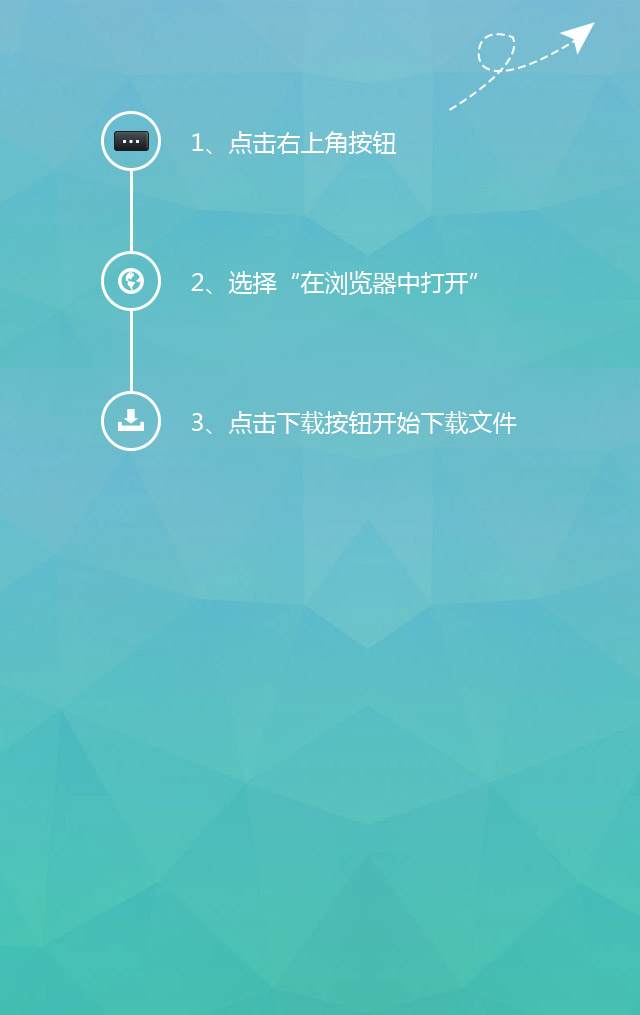第14课:做游戏《走遍美国》
第14课:做游戏《走遍美国》
ACT 1-1 “住在郊区有很多好处。”
【故事梗概】
曼哈顿岛索霍区,Susan的公寓住所里,Susan和Harry正在为Michelle和她的朋友们准备午饭。Susan喜欢住在大城市。Harry也觉得住在大城市文化生活丰富,对于孩子也蛮有好处。
Harry: You like living in New York, don't you?
Susan: Oh, I love it, it's so convenient. I can take the bus to work… or the subway… or a taxi. And there's so much to do. Lots of movie houses, and the theater.
Harry: I know what you mean. I'd like to live in the city, but living in New Jersey and the suburbs is better for Michelle. Trees, grass.
Susan: There's a lot of good things about suburban living. I grew up in Riverdale, remember? So I know. But, as a working woman, I think New York has all the conveniences-including the best tomatoes. [She gives a slice of tomato to Harry to taste.]
Harry: The truth is, I'd like to live in the city. Michelle's the right age. There are lots of things for her here.
Susan: You're right, Harry. Today is the perfect example. Michelle and her friends are at the aquarium in Brooklyn. They come back here for lunch, then go uptown to the Museum of Natural History. There's so much for young people to see and do. It's just incredible!
【语言点精讲】
1. I'd like to live in the city, but living in New Jersey and the suburbs is better for Michelle.
我也愿意住在市里,但对Michelle来说住在新泽西的郊区要更好一些。
suburb: 郊区。它的英文解释是“A suburb is an area of a town or city which is not close to the town or city and where people who work in the town or city often live. ”严格地说,这样的“郊区”在我国还很少见。在美国,一般说来,中产阶级或更高收入的人常住郊区,而都市闹市区居民常是低收入者和流浪汉,不过也不能就此一概而论,例如纽约市的曼哈顿区,也有一小部分极其昂贵而高级的公寓,是世界首富们的住所。
2. There's a lot of good things about suburban living.
住在郊区有很多好处。
There's a lot of good things.: 这有很多好处。这句话的正确说法是There are a lot of good things. there be句型中的 be的单复数取决于 be 后面的真正主语是单数还是复数。口语中将there are说成there is是常见的。
suburban living: 郊区生活。
3. But, as a working woman, I think New York has all the conveniences -- including the best tomatoes.
可是,作为一个职业女性,我认为纽约有一切的便利——包括最好的西红柿。
working woman: 职业女性。
convenience: 便利条件;便利设施。
4. Michelle's the right age.
Michelle的年龄也合适了。此处指Michelle到了学知识长见识的年龄。
5. Michelle and her friends are at the aquarium in Brooklyn. They come back here for lunch, then go uptown to the Museum of Natural History.
Michelle和她的朋友们去参观布鲁克林的水族馆。她们将回到这儿来吃午饭,然后到市的北部参观自然历史博物馆。
aquarium:水族馆。
uptown: 指离开商业区或远离市中心的地方,反之为downtown,在纽约则分指曼哈顿岛的北南两端。除此之外,在美国国内向南走为down,反之为up,和我们所说的“南下”,“北上”是一致的。
Museum of Natural History: 自然历史博物馆。这是纽约市的一个著名博物馆,该馆以它所收藏的恐龙骨骼和关于全世界不同文化人种的展览而闻名。
6. It's just incredible!
简直令人难以置信。
ACT 1-2 “看起来很吸引人。”
【故事梗概】
谈到了住在城里的好处,Susan回忆起了自己小时候,爸妈挤出时间陪她和她的兄弟到市里玩儿的事。
Harry: Not just for young people. What about me? I've never been to the aquarium or the Museum of Natural History. Have you?
Susan: Oh yes, Harry. My mother and father often took us somewhere in the city on the weekends. Dad was a busy doctor, but he usually managed to squeeze a Sunday in with Richard, Robbie, and me. I used to love to go to the Metropolitan Museum of Art.
Harry: I've been there several times. Twice with Michelle.
Susan: You ought to think about spending more time with Michelle at all the great places in the city.
Harry: Well, perhaps, you'll help me select some of the great places. And perhaps, you'll join us?
Susan: Perhaps I will.
[Later. Susan and Harry have just set the table for lunch.]
Susan: Well, there we are. All set for lunch, Harry.
Harry: It looks inviting. I wish Michelle and her friends would get here. I'm starving, aren't you?
Susan: I can't wait to take a bite of the pumpernickel. It smells so delicious.
【语言点精讲】
1. Dad was a busy doctor, but he usually managed to squeeze a Sunday in with Richard, Robbie, and me.
爸爸当医生很忙,但他时常能腾出一个星期日和Richard、Robbie还有我在一起。
manage to do sth.: 设法、努力(完成某事)。一般指成功地完成某事,特别是指有一定难度的事。不用否定式。表示不需要别人帮助时,常说I can manage.
squeeze a Sunday in: 腾出一个星期日。
2. I used to love to go to the Metropolitan Museum of Art.
我那时常喜欢去参观大都会美术馆。
used to do: 过去常常做某事。暗含有“现在不再那样了”的意思。
Metropolitan Museum of Art: 大都会美术馆。这是纽约市的一所著名艺术博物馆,它珍藏着许多世界上最著名的绘画。
3. You ought to think about spending more time with Michelle at all the great places in the city.
你应当考虑多花点儿时间带Michelle逛一逛市内所有的好地方。
ought to: 表示“义务”,应该如何。ought to 比must的口气稍轻一些,可以用should代替,但should更多地表示说话人自己主观的判断或意见,而ought to更多地反映客观的情况或要求。
think about spending more time: 考虑多花点时间。动词短语 think about之后要用动名词作介词宾语。
4. All set for lunch.
午餐的一切都准备好了。这里是省略用法,完整形式是: All are set for lunch.
5. It looks inviting.
看起来很吸引人。
inviting: 吸引人的,诱人的。
6. I'm starving, aren't you?
我饿极了,你呢?这是反意疑问句的特殊结构。一般情况下,反意疑问句中陈述部分和疑问部分的主语是一致的,例如: You're hungry, aren't you?
7. I can't wait to take a bite of the pumpernickel.
我真想马上就吃一口那裸麦粗面包。
can’t wait to do sth.: 迫不及待想要做某事。
take a bite: 咬一口,尝一口。
pumpernickel: 裸麦粗面包。
ACT 1-3 “我这样做也是为了你。”
【故事梗概】
Michelle和她的朋友们来吃午饭了。Harry对Susan为他们父女所作的一切感激不尽。
Susan: Coming! Coming! [She speaks into the intercom.] Who is it?
Michelle: Michelle. It's us, Susan.
Susan: Come in, Michelle, and bring your friends along. We're on the fifth floor. Oh, you've been here before.
Harry: Susan, I really appreciate your doing this for Michelle and her friends.
Susan: Oh, please, Harry. It's nothing. I'm not just doing it for Michelle. I'm doing it for you.
Harry: Thank you.
Susan: I'm doing it for us, Harry.
Harry: Well, it's… it's important for Michelle to see us together more often. That's true.
Susan: It's important for Michelle and me to get to know each other better. That's important for us.
Harry: That makes me feel good.
Susan: What, Harry? What makes you feel good?
Harry: Well, that you care about Michelle, that you care about me, and that you care about us.
Susan: Well Harry, that's because I do. I do care.
Harry: They'll be here any minute. Susan, I'd like to continue this conversation later.
Susan: Of course, Harry. We'll finish the conversation when they go to the museum.
Harry: I'd like that.
Susan: So would I.
【语言点精讲】
1. It's us.
是我们。正式用法应该是 It's we。
2. I really appreciate your doing this for Michelle and her friends.
我真的很感谢你为米歇尔和她的朋友们做这么多事。appreciate之后接名词或动名词。
3. Oh, please, Harry. It's nothing.
噢,别这么说,Harry,这算不了什么。
please: 这里的意思是“请不要这么说,别客气”。
4. I'm not just doing it for Michelle. I'm doing it for you.
我不光是为了Michelle,我这样做也是为了你。
这里现在进行时表示现在正在做的事的目的或理由,有较强的感情色彩。
5. That's true.
确实这样。
That's true./That makes me feel good./That's important for us. 本情景中先后出现的这三个that很充分地说明了一点,即人们常用that指前面刚发生过或说过的事和话。要想指即将说或发生的话或事则要用this,如: Now listen to this. I'll never allow him to come here.
6. It's important for Michelle and me to get to know each other better.
重要的是让Michelle和我互相更了解。
It's important for sb. to do sth.: 是个固定结构,意思是“某人做某事是重要的”。
get to know each other: 增进(彼此之间的)了解。get to know是表示转变的过程,由相互不太熟识理解到更好地熟识理解。
7. Well, that you care about Michelle, that you care about me, and that you care about us.
care about: 关心。
8. They'll be here any minute.
她们马上就上来了。
any minute: 意思是“随时都可能”,也就是soon或immediately。注意any minute前面是不用介词at的。
ACT 2-1 “我以前从没有去过那儿。”
【故事梗概】
Michelle和她的朋友们到了Susan的公寓,她把她们介绍给Susan。
Michelle: Oh, Daddy! We had such a good time at the aquarium. I saw a real shark. I could almost touch it.
Harry: I'm so glad. Hi Michelle, why don't you introduce everybody to Susan?
Michelle: Hi, Susan.
Susan: Hi.
Michelle: I'd like you to meet Audrey and her mother, Mrs. Cooper.
Susan: Hello, Audrey. Nice to meet you, Mrs. Cooper. I'm Susan Stewart.
Michelle: And this is Shirley and Nicole.
Susan: Hi, girls.
Harry: Come on in. Come on in, Mrs. Cooper. Come on in, everybody.
Mother: The aquarium was so exciting. I had never been there before. The girls learned a great deal. Frankly, so did I.
Susan: well, please sit down and tell us all about it during lunch.
Harry: We prepared some tuna fish and cheese sandwiches for lunch.
Michelle: I love tuna fish. Don't you, Audrey?
Susan: I remember when I used to be a Girl Scout. My mother would take us everywhere, too.
【语言点精讲】
1. Why don't you introduce everybody to Susan?
为什么把大家介绍给Susan呢?
这是用 why don't句式提出建议的又一例。进行社交介绍时,一般是把客人、年纪较轻及地位较低的人介绍给主人、年长者和地位较高的人。
2. I'd like you to meet Audrey and her mother, Mrs. Cooper.
我来给你介绍Audrey和她的母亲Cooper夫人。
I'd like you to meet…: 我来向你介绍……。这是介绍人时常用的表达法。
3. Come on in.
进来吧!意思与“ Come in.”相同。这是比 Come in更随和、友好的说法。
4. I had never been there before.
我以前从没有去过那儿。这句话用的过去完成时态,表达的意思为“到我今天上午带孩子们去以前为止,我从未去过”。过去完成时用had +过去分词构成,表示过去某一时间以前完成的动作或状态。
5. We prepared some tuna fish and cheese sandwiches for lunch.
tuna fish: 金枪鱼,也称“鲔鱼”,常用来做三明治。
tuna fish and cheese sandwiches 是以金枪鱼为主,又加上一片干酪的三明治。金枪鱼常是罐头里开出来即用的,而干酪也常是制成薄薄的方片,每片分别包在塑料纸中,专供制三明治用的。
6. I remember when I used to be a Girl Scout. My mother would take us everywhere, too.
我记得我还是一名女童子军的时候,我母亲也常带我们到处去逛。
I remember when I used to be a Girl Scout. : 我记得我还是一名女童子军的时候。这里的when 引导的不是状语从句。这句话更完整的形式是 I remember the time when I used to be a Girl Scout, 所以when引导的是定语从句。
a Girl Scout: 美国有两个童子军组织,即男童子军(Boy Scouts)和女童子军(Girl Scouts)。男童子军创始于1910年,女童子军创始于1912年。组织童子军的目的是为了帮助男孩和女孩成为好公民,并且在心理和身体两方面得到健康发展。
would: 经常。用would描述过去的事情时,表示过去经常发生的事情。
ACT 2-2 “我碰巧有一种新游戏在这儿。”
【故事梗概】
Susan手头有一套正在研发阶段的新游戏器具。在Michelle的建议下,她想让Michelle和她的朋友们帮忙测试一下这套游戏的效果。
Mother: Susan, I understand you're in the toy business.
Susan: Yes, I am. My company manufactures toys and games for children.
Harry: Susan's vice-president in charge of new toys and games.
Susan: And the marketing of new toys and games.
Michelle: Can we test a new game for you, Susan?
Susan: That's an excellent idea, Michelle. I happened to have a game which I brought home to study.
Michelle: Let us try it! Don't you want to play? Nicole? Shirley? Audrey?
Susan: [She takes out a game.] We tested it last week on twelve-to fifteen-year-olds, and they found it to be too easy-in other words … boring. We think it might be just right for ten-to twelve-year-olds.
Michelle: That's us, Susan.
【语言点精讲】
1. I understand you're in the toy business.
我听说你是从事玩具业工作的。
understand: 在这里的意思是“获悉,得知,听说”。
in the toy business: 从事玩具业工作。
2. Susan's vice-president in charge of new toys and games.
苏珊是主管新玩具和游戏器具的副总裁。
in charge of: 主管,负责。
3. I happened to have a game which I brought home to study.
我碰巧有一种新游戏在这儿,我把它拿回家来研究的。
I happen to: 我碰巧……。这里happen不是“发生”,而是“碰巧”的意思。
4. We tested it last week on twelve-to fifteen-year-olds, and they found it to be too easy-in other words … boring.
上周我们在12岁至15岁的孩子中试验过这套游戏,他们觉得这太容易了——换句话说,是太无聊了。
We tested it on…: 在这里的意思相当于 We tried it with …
twelve-to fifteen-year-olds : 12岁至15岁的孩子。
they found it to be: 他们觉得,他们发现。
in other words: 换句话说,也就是说。
ACT 2-3 “你们不分胜负。”
【故事梗概】
Susan为大家解释了游戏规则。大家试着玩了一轮。但是Michelle觉得这个游戏太简单了。
Susan: First, you shuffle the deck and lay them face down. Then you select the leader. I'll be the leader. The leader takes the first ten cards and lays them face up on this stand. [She places the letters h-t-e-r-c-z-e-p-e-s on the stand.] Everyone gets a turn, going counterclockwise, left to right. You have thirty seconds to make a word, using as many letters as possible. You get one point for each letter, plus the person with the longest word gets ten extra points. The first one to get one hundred points wins.
Michelle: That's easy.
Susan: Ok, let's go around the table. You first, Audrey.
Audrey: Chest-c-h-e-s-t.
Susan: Good. That's five points Next, Nicole.
Nicole: Three--t-h-r-e-e.
Susan: Ok. That's five points also. It's your turn, Shirley.
Shirley: Creep-c-r-e-e-p.
Susan: Creep. That's another five-letter word. Five points. So far, you're all tied.
Harry: Sheet--s-h-e-e-t--sheet.
Susan: Sheet is a five-letter word. Michelle, your turn.
Michelle: Cheese--c-h-e-e-s-e.
Susan: Terrific! Michelle wins with a six-letter word, plus she gets an additional ten points for a total of sixteen points. How are you enjoying the game so far?
Michelle: I think it's too easy.
Susan: Too easy?
Harry: Michelle!
Susan: It's Ok, Harry. Michelle is quite right. She just said it's too easy.
Harry: Uh, I like the game.
【语言点精讲】
1. First, you shuffle the deck and lay them face down.
首先你们得洗牌,洗好的牌面朝下放在桌上。
shuffle the deck: 洗牌。
lay: 放置。过去式和过去分词都是laid。注意lie(躺)的过去式也是lay。
face down: 正面朝下。
2. The leader takes the first ten cards and lays them face up on this stand.
领头人拿起头10张牌,把它们翻开面朝上放在这个架子上。
face up: 正面朝上。
stand: 在这里用作名词,意思是“架子,台子”。
3. Everyone gets a turn, going counterclockwise, left to right.
每个人都可以轮到一次,反时针方向轮流来,从左到右。
get a turn: 得到一次机会,轮到一次。
counterclockwise: 逆时针方向。此处指如以桌子比作钟面(从上方向下看),依次由左向右的方向。反之则为clockwise( 顺时针方向)。
4. You have thirty seconds to make a word, using as many letters as possible.
你可以有30秒钟时间拼出一个单词,用的字母越多越好。
using as many letters as possible: 用的字母越多越好。as … as possible意思是“尽可能……”。
5. Ok, let's go around the table.
好吧,我们顺着桌子来(做这游戏)吧。这里的go意思是“进行”。
6. It's your turn.
该轮到你了。
7. So far, you're all tied.
至今为止你们的得分都一样,不分胜负。
so far: 到现在为止。
you're all tied: 你们的得分一样,你们不分胜负。tie在这里的意思是“与……打成平局”。
8. Michelle!
这里表示Harry责备Michelle.
Michelle说Susan给她们玩的游戏太简单了,Harry认为她这样说不礼貌,所以叫她的名字,以示责备。
ACT 2-4 “我们不是有话没说完吗?”
【故事梗概】
孩子们下午还有活动,她们起身告辞了。刚刚被父亲责备的Michelle在试着向Susan道歉,Susan却夸她为公司避免了错误的决策。
Mother: I enjoyed lunch, Susan. Thank you so much, but we have to get going to meet the rest of the troop at two o'clock at the museum.
Susan: Oh, it was nice meeting all of you. I hope you have a wonderful time at the Museum of Natural History.
Harry: Good-bye, everybody. Have a good time.
Girls: Bye.
Harry: See you in front of the museum at five o'clock.
Mother: Oh, Ok. Thanks, Mr. Bennett. That'll be fine. And thanks again for the lunch and for the game.
Michelle: Good-bye, Susan. It's not a bad game. It's just… slow.
Susan: Just slow. You helped save our company a lot of money Bye-bye.
[Michelle and her friends leave with Mrs. Cooper.]
Harry: You are wonderful with kids.
Susan: I am.
Harry: Isn't there a conversation that we have to finish?
【语言点精讲】
1. I enjoyed lunch, Susan.
这顿午饭真好,Susan。在别人请吃饭后,一般要表示吃得好,以示感谢。
2. Thank you so much, but we have to get going to meet the rest of the troop at two o'clock at the museum.
很感谢你,可是我们得开始上路了,下午两点钟还要在博物馆和女童子军的别的队员会合呢。
get going: 开始上路,相当于“to start to leave”。get在这里表示转变的过程。
troop: 指的是由成年人领队带领的童子军队伍。
3. It was nice meeting all of you.
很高兴见到你们各位。这句话相当于 It was nice to meet all of you.
4. See you in front of the museum at five o'clock.
五点钟在博物馆门前再见。
in front of意思是在……前面。注意把这个词组与 in the front of区别开来。 in the front of意思是“在…… 的前部分”。例如:
The teacher is in the front of the classroom. 老师在教室的前面(在教室里)。
The teacher is in front of the classroom.老师在教室前面(在教室外面)。
5. It's not a bad game. It's just… slow.
那游戏不坏,只是……不太有趣。
just: 只是,仅仅。在否定的时候,可以使用just或者only之类的词来缓和语气。
6. You are so wonderful with kids.
你对小孩真有一套。你真会哄小孩儿。
7. Isn't there a conversation that we have to finish ?
我们不是有话没说完吗?
ACT 3-1 “你到底想说什么?”
【故事梗概】
Michelle和她的朋友走后, Susan 和Harry 又有了独处的时间。Harry耍了点并不高明的小聪明,借助于拼词游戏试着向Susan求婚。
Harry: There's a conversation we have to finish.
Susan: What was it about?
Harry: It was about caring.
Susan: Oh?
Harry: Yes, caring. I said that it makes me feel good that you care about Michelle.
Susan: Well, I do care about Michelle.
Harry: And it makes me feel good that you care about me.
Susan: You know I do. You're a … wonderful friend.
Harry: And it makes me feel good that you care about us.
Susan: Well… well, I do, Harry, it's only natural that if I care about Michelle and I care about you, then I care about us.
Harry: It's Ok, Susan we had this part of the conversation before Michelle and her friends arrived. Now comes the good part.
Susan: Like what?
Harry: Well, assume that if you care about Michelle and you care about me and you care about us, then we can talk about us. I mean -- you and me. Isn't that right?
Susan: What are you trying to say, Harry?
Harry: What I'm trying to say since this is so easy …. [He goes to the game stand and puts up some letters.] Here are ten letters that express my feelings … for you.
Susan: Don't be silly, Harry.
Harry: You want a hint? It's two words.
Susan: You're making the game harder.
Harry: Can't you figure it out? Seven letters … two words … that express the feelings that I feel for you in my heart.
Susan: Harry. I get it! [She rearranges the letters to spell “marry me.”]
【语言点精讲】
1. I said that it makes me feel good that you care about Michelle.
我说你关心Michelle ,我感到很高兴。
这句话主句与从句的时态不一致。that 从句中使用一般现在时,同主句I said的过去时不一致,是强调所说的内容属于现在的状态,仍然继续存在。
it: 这里的it是形式主语,真正的主语是good后面的that句。 下文中And it makes me feel good that you care about us.以及It's only natural that if I care about Michelle and I care about you都属这一用法。
care about sb.: 关心某人,在乎某人。
2. It's Ok, Susan we had this part of the conversation before Michelle and her friends arrived. Now comes the good part.
we had this part of the conversation: 这一部分我们已经谈过了。
Now comes the good part. : 现在到了最精彩的部分。Harry的意思是他将开始谈话的最精彩的部分。当谓语动词为come时,now/then/here等词可放在动词前面,而主语则放在动词后面。又如: Here comes the bus.
3. Like what?
像什么样的(精采部分)?这是很口语化的用法,意思相当于Such as…?
4. Well, assume that if you care about Michelle and you care about me and you care about us, then we can talk about us.
好,首先假设一下,如果你关心米歇尔,你关心我,你关心咱们两个人,那么我们就可以谈一谈咱们的事。
这整个句子是个不带主语的祈使句。assume: 假设,假定。
5. What are you trying to say, Harry ?
你到底想说什么,Harry?
6. Don't be silly, Harry.
别闹了,Harry。 Don't be silly在口语中表示“不要乱来,别开玩笑”。
7. Can't you figure it out?
你难道想不出答案来?
figure it out: 找到答案,想出来,弄明白。
8. I get it!
我想出来了。我知道答案了。
ACT 3-2 “你愿意嫁给我吗?”
【故事梗概】
Harry鼓足了勇气,说出了求婚的话。Susan同意接受他的求婚,但却提出了三个先决条件。
Harry: Well? Does that mean you'll marry me?
Susan: Is that a proposal, or are we just playing a game?
Harry: Sit down, Susan. There's something I have to ask you. [He takes a flower from the table and gets down on one knee.] Susan, will you marry me?
Susan: It's such an important decision. There's so many things to talk about. There are three things that have to be done first, Harry.
Harry: Three things?
Susan: First, we have to decide where to live.
Harry: Well, that’s easy. We talked about that earlier. We'll live in New York.
Susan: All right. Second, we have to talk to Michelle together about being married.
Harry: We'll do that immediately. What's the third thing?
Susan: You have to ask for my father's permission.
Harry: Absolutely! But first things first. We have to go to pick up Michelle.
Susan: Oh, I'm so happy, Harry!
Harry: Not as happy as I am.
【语言点精讲】
1. Susan, will you marry me?
Susan,你愿意嫁给我吗?句中的will是情态动词,表示“意愿,意志”。
2. It's such an important decision. There's so many things to talk about. There are three things that have to be done first, Harry.
这是一个非常重要的决定,有许多事情要谈谈。首先有三件事要做,Harry。
There's so many things …There are three things…: 口语里,在There+ be的句式中,当在它后面并不马上出现复数名词时,习惯上be动词用单数。如这里的there's so many things和 there are three things 即可说明。
3. We have to decide where to live.
我们得决定住在哪里。
这句话中decide的宾语由where加不定式to live构成。动词不定式前面加疑问副词后作宾语,其功能相当于宾语从句。
4. Second, we have to talk to Michelle together about being married.
第二件,我们得一起同Michelle谈一下我们要结婚的事。
being married: 我们结婚的事。这个短语表示状态,更准确的说法应该是表示动作,即 getting married。
5. You have to ask for my father's permission.
你应当征得我父亲的同意。
在美国,女孩子要嫁人需征求父亲的意见是一个传统习惯。然而现在,结婚时,男方要征得女方父亲的同意的情况已不多见。这一句说明苏珊还是比较旧派的女子。
ask for sb’s permission: 征求某人的同意,征得某人的许可。也可以说ask sb. for permission
6. But first things first. We have to go to pick up Michelle.
first things first: 事有先后。
to pick up Michelle: 去接 Michelle。
7. Not as happy as I am.
没有我那么幸福。
推荐
-

-

QQ空间
-

新浪微博
-

人人网
-

豆瓣

